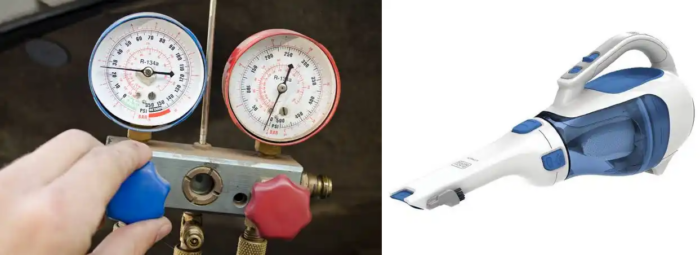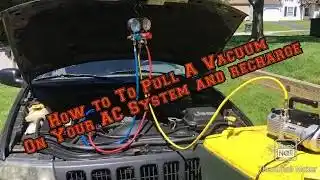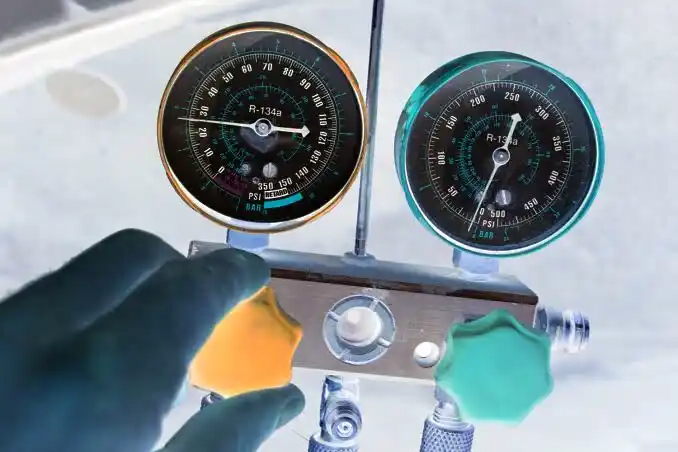
The Importance of Vacuuming Your AC System After Compressor Replacement
Do you have to vacuum your ac system? As an HVAC technician, I have seen many homeowners overlook the importance of vacuuming their AC system after a compressor replacement.
This oversight can lead to serious consequences such as poor cooling performance, compressor failure, and even health hazards.
In this article, I will explain why vacuuming your AC system after compressor replacement is important, what equipment is needed, and how to avoid common mistakes during the process. But before then, let’s understand what an AC system is.
Understanding the AC System
Before we dive into the importance of vacuuming your Air condition system, let’s first understand how the system works.
The AC system consists of several components such as the compressor, evaporator coil, condenser coil, and refrigerant lines. These components work together to cool your home by transferring heat from inside to outside.
The compressor is the heart of the AC system, and it pumps refrigerant throughout the system. When the compressor fails, it needs to be replaced to restore the cooling performance of the Air Conditioning system.
However, replacing the compressor alone is not enough to ensure optimal performance. Vacuuming the AC system after compressor replacement is crucial, and here’s why.
Why Vacuuming is Necessary After Compressor Replacement

When the compressor fails, it releases debris such as metal shavings, dirt, and moisture into the AC system. These contaminants can cause blockages in the refrigerant lines, clog the expansion valve, and even damage the new compressor.
Vacuuming the AC system after compressor replacement removes these contaminants, ensuring the system runs smoothly.
Vacuuming the AC system also removes any moisture that may have entered the system during the compressor replacement process.
Moisture in the AC system can cause corrosion, which can lead to leaks and further damage to the system. Vacuuming removes the moisture, ensuring the AC system operates optimally.
Consequences of Not Vacuuming the AC System
If you skip vacuuming your AC system after compressor replacement, you may notice poor cooling performance.
This is because the contaminants left in the system can cause blockages and clog the expansion valve, preventing refrigerant from flowing freely.
This can also cause the new compressor to work harder, leading to premature failure and costly repairs.
Another consequence of not vacuuming the AC system is the potential health hazard. Moisture in the AC system can cause mold and bacteria growth, which can lead to respiratory problems and allergic reactions.
Equipment Needed for Vacuuming the AC System

To vacuum your AC system after compressor replacement, you will need a vacuum pump, refrigerant gauges, and a micron gauge.
The vacuum pump evacuates the system of air and moisture, while refrigerant gauges measure the refrigerant pressure and ensure the proper amount of refrigerant is added to the system.
The micron gauge measures the level of vacuum in the system, ensuring it is at the proper level.
How to Properly Vacuum the AC System
To properly vacuum your AC system after compressor replacement, follow these steps:
- Close the service valves on the AC system to isolate it from the rest of the refrigerant circuit.
- Attach the refrigerant gauges and micron gauge to the service ports on the AC system.
- Connect the vacuum pump to the micron gauge and turn it on.
- Allow the vacuum pump to run for at least 30 minutes to ensure all the air and moisture is removed from the system.
- Monitor the micron gauge to ensure the vacuum level is at least 500 microns.
- Once the vacuum level is achieved, close the low-pressure valve on the vacuum pump and let the system sit for at least 30 minutes to ensure there are no leaks.
- Open the service valves on the AC system and add the proper amount of refrigerant to the system using the refrigerant gauges.
Common Mistakes to Avoid During Vacuuming
One common mistake during vacuuming is not allowing the vacuum pump to run for at least 30 minutes. This can lead to residual moisture and air in the system, causing poor cooling performance and potential compressor failure.
Another mistake is not using a micron gauge to monitor the vacuum level. If the vacuum level is not achieved, the AC system may not operate properly, and refrigerant may leak out of the system.
Signs That Your AC System Needs Vacuuming After Compressor Replacement
If you notice poor cooling performance, unusual noises, or leaks after a compressor replacement, it may be a sign that your AC system needs vacuuming.
These symptoms indicate that there may be contaminants or moisture in the system, preventing it from operating optimally.
The Importance of Hiring a Professional for Vacuuming AC System

Vacuuming your AC system after compressor replacement can be a complicated and time-consuming process. If not done correctly, it can lead to costly repairs and potential health hazards.
Hiring a professional HVAC technician ensures that the vacuuming process is done correctly and safely, ensuring optimal performance and longevity of your AC system.
Conclusion: do you have to vacuum AC system?
In conclusion, vacuuming your AC after compressor replacement is crucial for the optimal performance and longevity of your AC.
It removes contaminants and moisture that can cause blockages, clogs, and damage to the new compressor. It also prevents health hazards such as mold and bacteria growth.
If you are not confident in your ability to vacuum your AC system, it is important to hire a professional HVAC technician to ensure the process is done correctly and safely.

